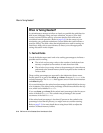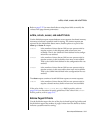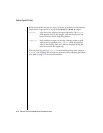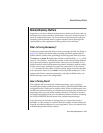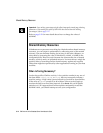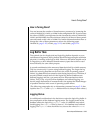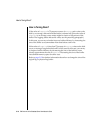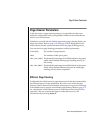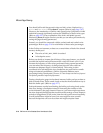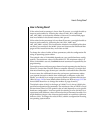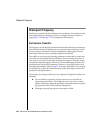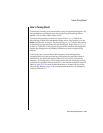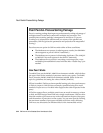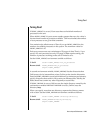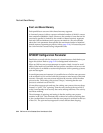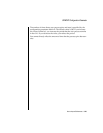
5-18 IBM Informix OnLine Database Server Administrator’s Guide
Efficient Page Cleaning
You should still avoid foreground writes and LRU writes, displayed as Fg
Writes
and LRU Writes in the tbstat -F output. (Refer to page page 7-87.)
However, the introduction of OnLine LRU queued pairs (composed of FLRU
and MLRU queues) significantly reduces the likelihood of these write types.
(Refer to page 2-57 for an explanation of the FLRU and MLRU queues.)
Monitoring tbstat -F might not alert you that you can affect performance by
tuning the page-cleaning parameters.
Instead, you should be concerned with the cached-read and cached-write
percentages. Refer to page 5-10 for a definition of these cache percentages.
In the OnLine environment, at least two events initiate a flush of the shared
memory-buffer pool:
■ The value of LRU_MAX_DIRTY is reached.
■ A checkpoint occurs.
Before you decide to increase the efficiency of the page cleaners, you should
consider the implied trade-off between idle writes and chunk writes. If you
increase the frequency of idle writes performed during normal operation,
you can reduce the frequency of checkpoints (since the idle writes can
maintain an adequate supply of clean buffers). This tuning is often
considered to be advantageous since checkpoints are perceived as contrib-
uting to decreased performance. (OnLine suspends database server
processing during a checkpoint.) However, it is not always true that less-frequent
checkpoints guarantee improved performance.
During a checkpoint, pages in the shared-memory buffer pool are written to
disk as chunk writes. These sorted, chunk writes are the most efficient way to
flush the buffer pool. (Refer to page 2-77.)
Peak performance results from flushing the buffer pool using chunk writes
that occur during a checkpoint instead of increasing the number of idle
writes initiated by the page cleaners. However, your users might experience
the more frequent checkpoints that result from this strategy as more frequent
periods of sluggishness. If idle writes clean the LRU queues more frequently,
overall performance might be lower, but users might be more content
because checkpoints can occur less often and might complete faster.



